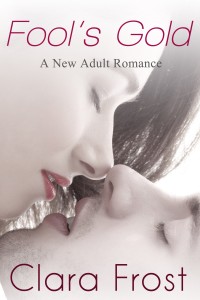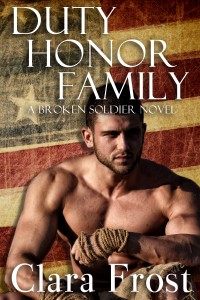 |
| Fool's Gold by Clara Frost |
Authors tend to be categorized in one of two ways: plotters and pantsers. Plotters start a new story by working out what will happen in broad strokes, refining down until they know their direction for anywhere from a few chapters to the whole book, and only then do they begin writing. Pantsers write by the seat of their pants, making it up as they go along. While there are shades of gray between the two, I fall on the side of the plotters most of the time.
Because of this, I know at the beginning who my hero and heroine are, how their relationship will develop, and how far I want their intimacy to go in each scene. Take Fool’s Gold, for example. The story is about two relationships: Trent and Victoria, and Victoria and Beta. I wanted Trent and Victoria’s to be fast and steamy and ultimately unsustainable, but Victoria and Beta to start of much slower and grow into something that meant more at the end. Victoria and Trent start with a touch and a kiss and then fall right into bed. Beta, on the other hand, cares deeply about Victoria, and is afraid of hurting her, so he will hardly touch her until much later.
How much set up do you do for any expressions of physical intimacy?
This is a place where I think fiction and reality have much in common. Intimacy is as much mental as it is physical, and the best intimacy is preceded by plenty of anticipation. In fiction this may mean multiple encounters culminating with one grand climax late in the story, or it may mean a much earlier scene that is slower paced and more drawn out, but ends just as steamy.
Of course, fiction and reality are both sometimes too fast and too messy, and the consequences of a deed may be more entertaining than the deed itself.
Do you have any pet peeves regarding kissing scenes in romance or non-romance stories?
Boredom. I hate boredom in all forms of fiction, but a story that beats me over the head with how perfect a hero is, and then he turns out to be a perfect kisser, too, I feel like I've wasted my time. There are certain tropes most romances follow, and when an author can give me a new take on those tropes, I’ll love them forever.
What do you consider to be the most important aspect of scenes featuring physical intimacy?
It has to have a purpose, preferably more than one. Intimate scenes should give the reader insight into all characters in the scene, it should move the plot of the story forward, and it should surprise me. To me, there’s nothing worse than two characters meeting, go straight into a steamy scene, and then afterward nothing has changed.
 |
| Duty Honor Family by Clara Frost |
In my more recent work, such as Duty Honor Family, I've taken the approach of setting up the scene and fading to black as the clothes hit the floor. If it’s done well, the reader’s imagination will give them a far better experience than I can as the writer. The secret for me is getting their imagination to the right place.
What are your favorite kissing scenes in fiction?
Rhett and Scarlett is probably the most iconic kissing scene in fiction, though I think you can make a case for Han and Leia being a slightly re-written take on the same beats.
But for my absolute favorite, I’ll defer to William Goldman.
“There have been five great kisses since 1642 B.C...(before then couples hooked thumbs.) And the precise rating of kisses is a terribly difficult thing, often leading to great controversy.... Well, this one left them all behind.”
Clara Frost is a romance writer based in the Midwestern United States. You can follow her online at www.clarafrost.com. Her latest novel, Duty Honor Family, is available at all major online retailers, including Amazon, B&N, Kobo and Apple.


